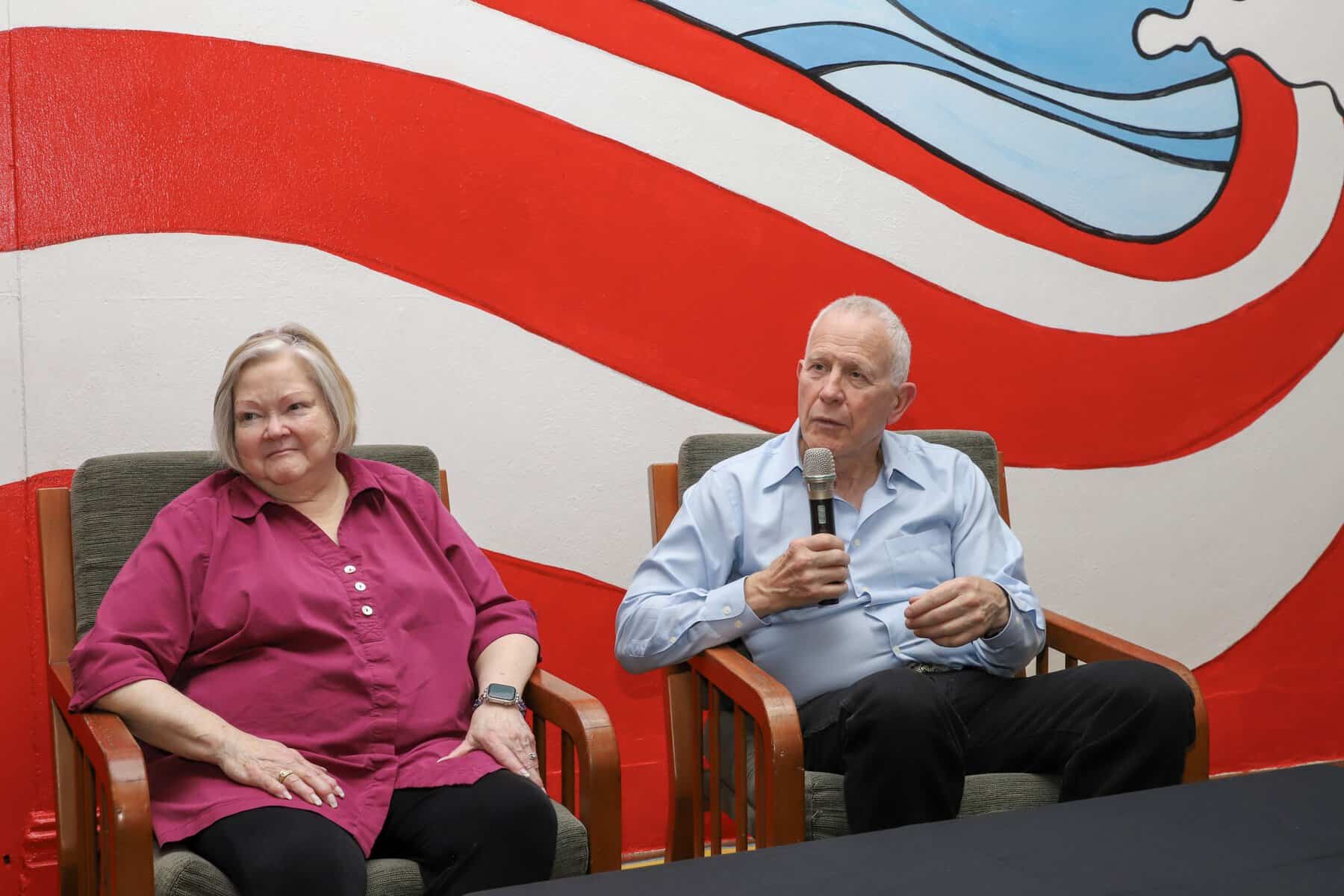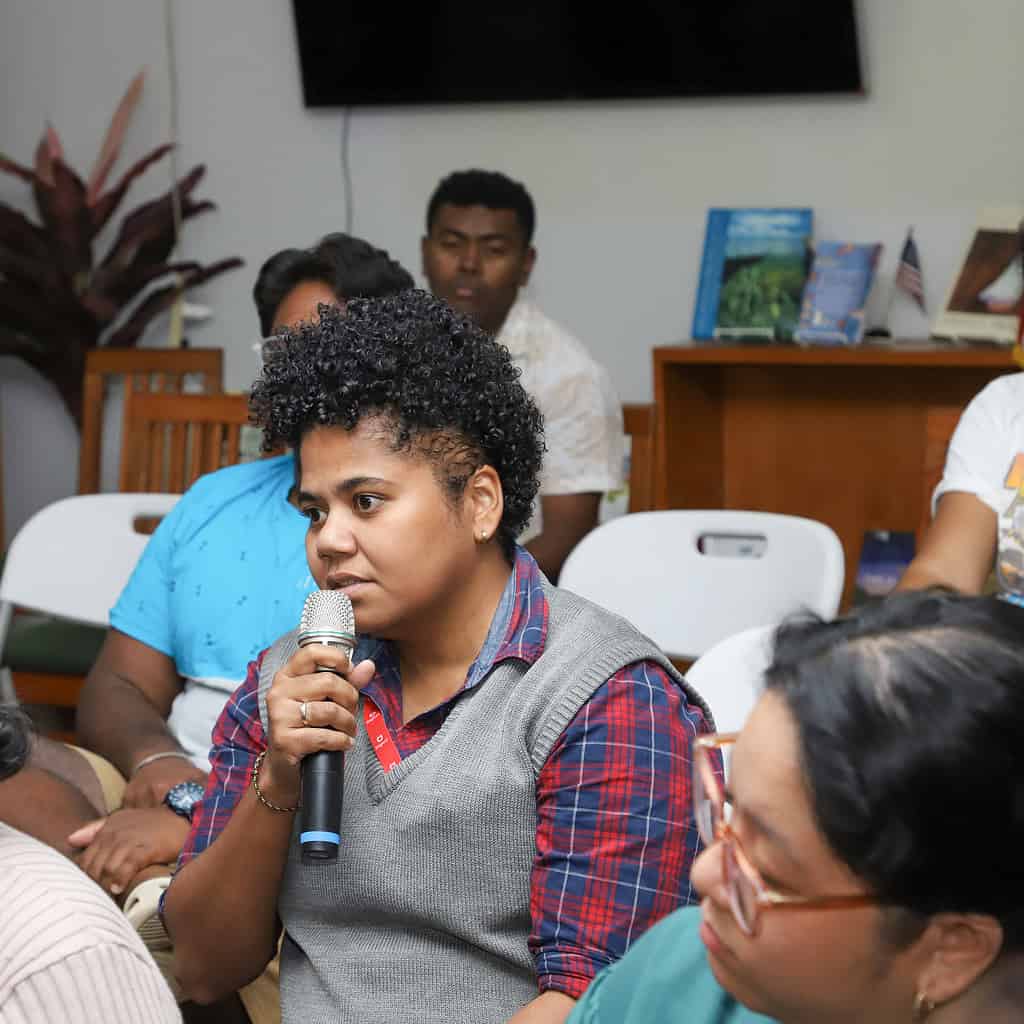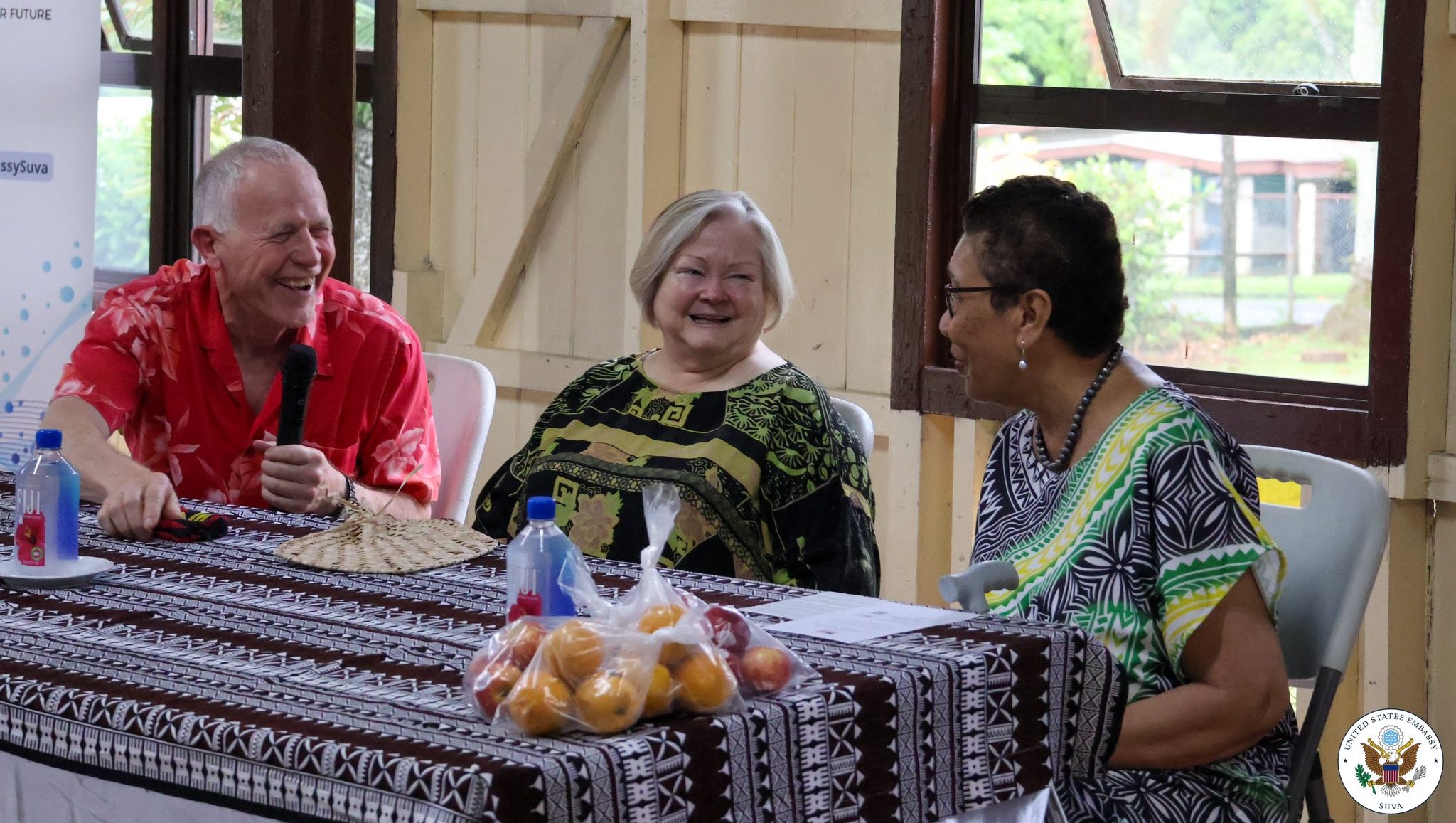Twenty-six years ago, Judy and Dennis Shepard’s son, Matthew, was killed in a hate crime. More than two decades later, they continue to share a message of kindness, most recently during a visit to Fiji.
They are powerful advocates for equal rights and protection for the marginalised, including members of the LGBTQI+ community in the United States and across the world.
Their mission began by establishing the Matthew Shepard Foundation, after the untimely passing of their son in 1998. He was murdered after reportedly being targeted because of his sexual orientation.
The couple’s visit to Fiji had them speak as part of a series titled “A Call to Kindness: Preventing Harm and Embracing Dignity for All”, hosted by the US Embassy in Suva. Members from Leadership Fiji, Trans Affirmative Action Guild, and other groups attended.
“We wanted very much to be about the things that Matthew believed in—human rights and equality,” said Judy Shepard.
In 2009, the couple played an instrumental role in the passage of the Matthew Shepard and James Byrd, Jr. Hate Crimes Prevention Act in the US Congress.
“It was a national precedent. There was a lot of attention given to us in the States, as well as internationally,” said Judy Shepard.
Early this month, Judy Shepard was awarded the Presidential Medal of Freedom by President Joe Biden for her drive for equality. It is the United States highest civilian honour presented to individuals who have made exemplary contributions to the prosperity, values, or security of the United States.
Her husband, Dennis Shepard, said they have faced challenges in their years of advocacy work due to the “vast amount of discrimination against the LGBTQI+ community” and the violence that goes along with that.

“You have those who believe in equal rights and you have those who do not believe in equal rights, and trying to convince so-called haters to become lovers, leads to some difficulty,” he said.
“Those who aren’t sure what to do are the ones that you work on, along with those who believe what you believe in. And by just being who you are, you set an example that others can follow and a lot of people can see how important it is to include you,” he added.
The Matthew Shepard Foundation works with law enforcement from the Department of Justice to the FBI and local police departments, giving them training on how to identify hate crimes, and how to investigate, report and follow up on these crimes.
“We also work closely with lobbying issues on hate crime laws, getting rid of anything that would possibly present harm to any of the marginalised communities,” Dennis noted.
The Matthew Shepard Foundation also helps combat the so-called gay/trans panic defence; a legal defence that legitimises and excuses violent and lethal behaviour against members of the LGBTQ+ community, according to the American Bar Association. “In the United States, a lot of LGBT+ community individuals have been severely injured or died because someone said that they made a pass at a person. And so they panicked and in that moment of panic they either beat someone to death or they shot someone to death or stabbed someone or whatever it was, they say. And they were successful. But more laws are being passed against that. So we work as much as we can to get those laws passed to eliminate gay panic defence around the country,” said Dennis Shepard.
Judy Shepard also noted the diversity of religious views on this issue.
“There are churches in the US that are welcoming and those who are not at all. I’m pretty sure that happens all over the world, not just in the US,” she said.
She continued: “The most important thing for Matthew that he told us was he just wanted to feel safe with family and friends. He felt like he had to come out every day to folks. It was a really hard thing to keep defining himself and he felt that the way to make that happen was just to talk, to be visible. This ability is everything. The more folks come out and the more folks are accepting, it creates a safer environment everywhere. The workplace, home, church, neighbourhood, your circle of friends.”
The couple told participants in the discussion that there was an urgent need to “change hearts and minds” and “the biggest way you do that is just be yourself”.
“Don’t be overwhelmed by what is happening. Every day is different. Things get better. It may not seem like that especially if you’re a young person going through school. It seems like it takes forever to have people who are bullying you or saying mean things or physically trying to harm you. It does get better. Just have the patience and the belief that it will get better. Work with your parents. Work with groups like the embassy. They have great ideas on what you can do as a young person to protect yourself and to move yourself forward. And they can give you ideas for groups that help individuals. So please, either you or if you see young people, tell them, never give up,” said Judy Shepard.
Trans Affirmative Action Guild (TAAG), a Fiji-based organisation that helps create safe spaces for people part of the LGBTQI+ community in Fiji, was represented at the discussion. TAAG member, Sainimilika Vadei, said the organisation has helped her in many ways and is open to accepting new members.
“It is one of the safe spaces that I have experienced considering the challenges that I face as an individual. TAAG was one of the organisations that found me and helped me come out and be outspoken,” she said.

